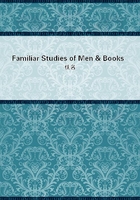
第13章
The passage on La Vendee is really great, and the scenes in Paris have much of the same broad merit. The book is full, as usual, of pregnant and splendid sayings. But when thus much is conceded by way of praise, we come to the other scale of the balance, and find this, also, somewhat heavy. There is here a yet greater over-employment of conventional dialogue than in L'HOMME QUI RIT; and much that should have been said by the author himself, if it were to be said at all, he has most unwarrantably put into the mouths of one or other of his characters. We should like to know what becomes of the main body of the troop in the wood of La Saudraie during the thirty pages or so in which the foreguard lays aside all discipline, and stops to gossip over a woman and some children. We have an unpleasant idea forced upon us at one place, in spite of all the good-natured incredulity that we can summon up to resist it. Is it possible that Monsieur Hugo thinks they ceased to steer the corvette while the gun was loose? Of the chapter in which Lantenac and Halmalho are alone together in the boat, the less said the better; of course, if there were nothing else, they would have been swamped thirty times over during the course of Lantenac's harangue. Again, after Lantenac has landed, we have scenes of almost inimitable workmanship that suggest the epithet "statuesque" by their clear and trenchant outline; but the tocsin scene will not do, and the tocsin unfortunately pervades the whole passage, ringing continually in our ears with a taunting accusation of falsehood. And then, when we come to the place where Lantenac meets the royalists, under the idea that he is going to meet the republicans, it seems as if there were a hitch in the stage mechanism. I have tried it over in every way, and I cannot conceive any disposition that would make the scene possible as narrated.
Such then, with their faults and their signal excellences, are the five great novels.
Romance is a language in which many persons learn to speak with a certain appearance of fluency; but there are few who can ever bend it to any practical need, few who can ever be said to express themselves in it. It has become abundantly plain in the foregoing examination that Victor Hugo occupies a high place among those few. He has always a perfect command over his stories; and we see that they are constructed with a high regard to some ulterior purpose, and that every situation is informed with moral significance and grandeur. Of no other man can the same thing be said in the same degree. His romances are not to be confused with "the novel with a purpose" as familiar to the English reader: this is generally the model of incompetence; and we see the moral clumsily forced into every hole and corner of the story, or thrown externally over it like a carpet over a railing. Now the moral significance, with Hugo, is of the essence of the romance; it is the organising principle. If you could somehow despoil LES MISERABLES OR LES TRAVAILLEURS of their distinctive lesson, you would find that the story had lost its interest and the book was dead.